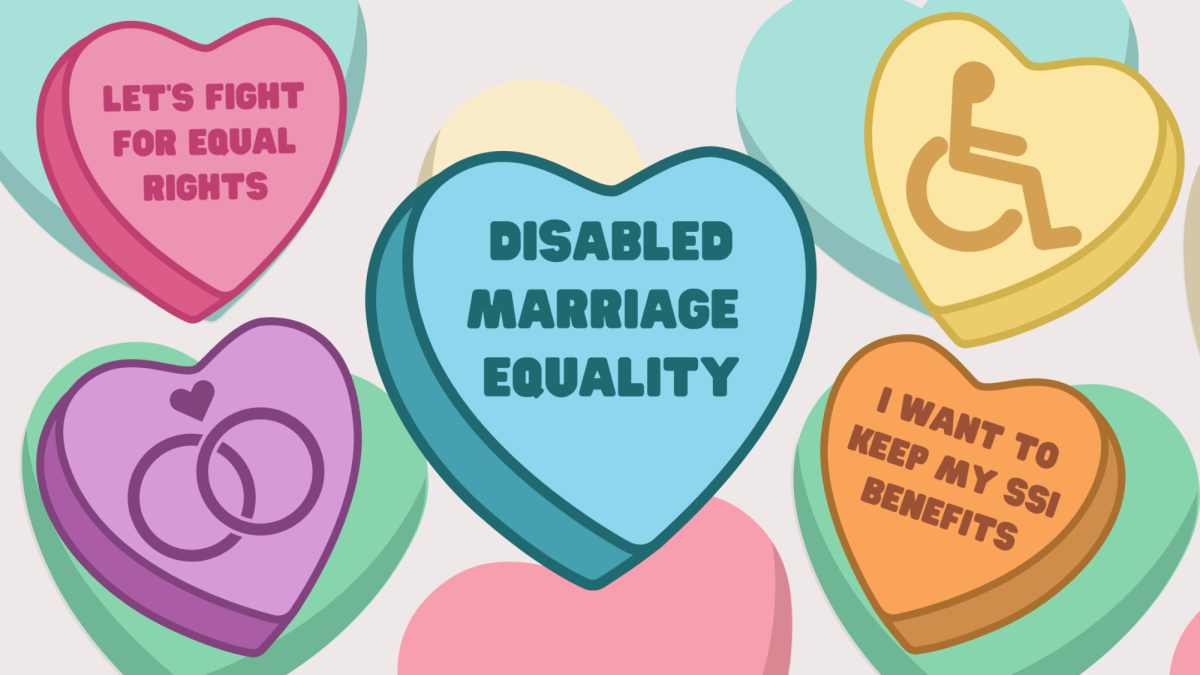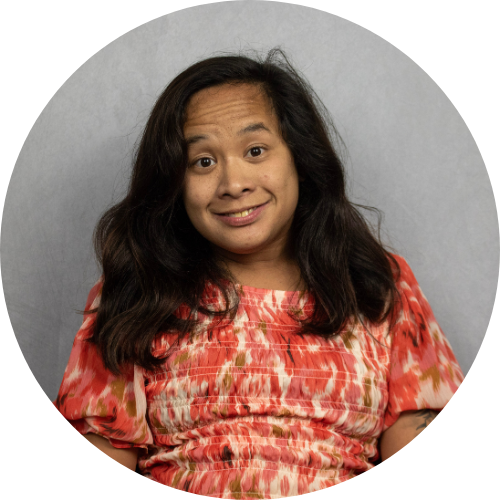Most young girls and women have an idea of what they want their wedding day to look like from an early age. They see it in the “happily-ever-afters” portrayed in their favorite romance or Disney movies.
But when I was a kid, I always wondered, “Why weren’t there any disabled princesses? Can someone like me be a princess, too?”
The topic of marriage equality has been controversial throughout my life. Disabled Americans across our country don’t have the option to marry without the fear of financial assistance from the government being reduced, or even taken away.
For this country to truly be a land of equal opportunity, disabled Americans should be allowed to marry without worrying about their benefits being stripped from them.
A single person collecting Supplemental Security Income can collect $1,133.73 without dependents and if blind, $1,211 each month. People on SSI risk losing health care benefits when choosing to marry due to the Treatment of Married Couples in the SSI program because of a penalty known as the “marriage penalty.”
The marriage penalty is when two married recipients receive one check that is one-quarter less than if they were to live together, but not as husband and wife.
When married, it’s harder for beneficiaries to keep necessary medical benefits. This is because the Social Security Administration reduces a person’s medical benefits and ability to access the proper medical attention they may require based on the spouse’s income.
This medical attention could range from specialty doctors who oftentimes cost a fortune without Medicare or Medicaid, to caregiving benefits only offered to those with Medicare health insurance.
Imagine relying primarily on government assistance for most of your adult life. You’re unable to find stable work due to your physical, mental or even emotional state. You dream of a life of stability, and the moment you choose to marry the person you want as your forever partner, you must live a reality of choosing between the two.
RELATED: Invisible and visible: Disability Access Center aims for inclusivity for all disabled students
Rep. Jimmy Panetta reintroduced the Marriage Equality for Disabled Adults Act, in July. If passed, the bill will eliminate the requirement to remain unmarried.
The bill will benefit hundreds of disabled adults and disabled adult children who have had their marriages terminated and countless DACs who have delayed marriage to prevent the loss of benefits.
Marriage in the eyes of our government is just official documentation. To most of us, marriage is a symbol of unity, a lifetime partnership and the most significant day of our lives.
While many citizens in our country have deeper values and views on marriage, disabled people feel like they are obligated to choose between a lifetime of happiness or a lifetime in poverty.
Kim Rutledge, deputy director of communications at the California Department of Rehabilitation, and her colleague Ana Acton from the Department of Rehabilitation shared their own experiences of receiving benefits prior to their careers and gave a more interpersonal perspective on how our government still has a significant hold on the disabled community.
“Disabled people deserve the right to marriage without penalty from the government,” Rutledge said.
Rutledge expressed her concern about the government’s perception of the disabled community and their civil rights.
“It’s unfair to the disabled community in our country to live at the poverty level if they choose to get married,” Acton said.
As a disabled woman, I work toward financial stability, so that one day I can get married without having to consider the funds I acquire through SSI. The disabled population within the U.S. deserves more.
The government shouldn’t be allowed to withhold financial and healthcare benefits based upon a beneficiary being married. Especially when only 21.3% of disabled people were employed as of last year, according to statistics from the U.S. Department of Labor.
It should be recognized that the majority of the disabled community suffers from this inequality due to society viewing some individuals as unemployable or unable to work. Despite the progression toward disability civil rights throughout the years, the government is still biased toward the disabled community.
As a full-time student, I am thankful for the SSI benefits I receive that allow me to make the most of my educational career. Yet, I can’t help but think about other disabled women who want that “happily ever after” that everyone deserves in life.
The Marriage Equality for Disabled Adults Act getting voted into law would revolutionize a community of people just wanting to live life like the rest of society.

































































































































